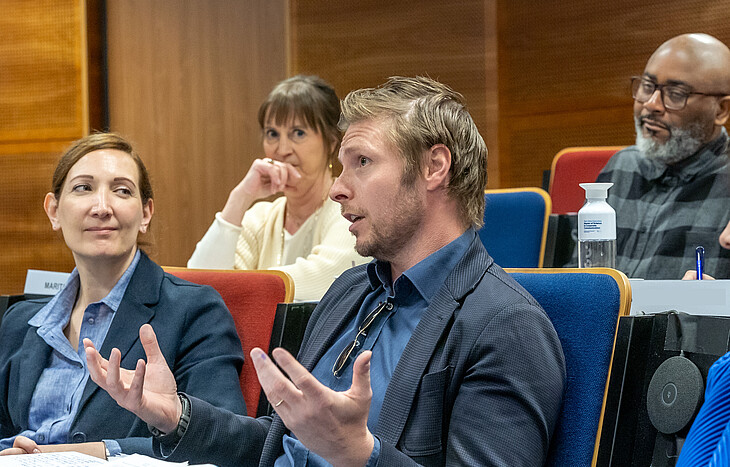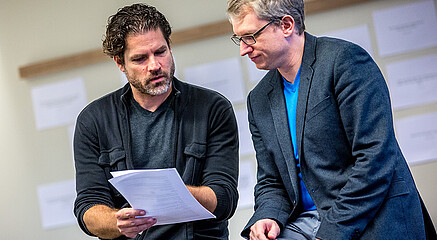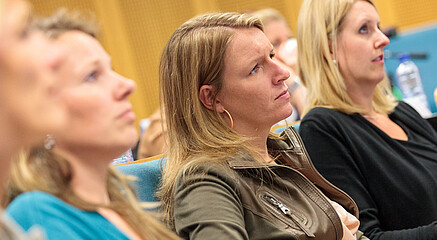

Businesses today must go beyond profitability—they need to act responsibly, integrate ethical values, and contribute to a better world. Are you ready to lead your organisation with conscience? Want to transform your business into a force for good while still ensuring profitability?
This course is offered by Rotterdam School of Management b.v.. For more information about the legal structure of Rotterdam School of Management, Erasmus University, visit this page.
Businesses today face increasing pressure to balance profitability with social and environmental responsibility. Traditional Corporate Social Responsibility (CSR) approaches, often separate from core business strategies, no longer suffice. Organisations must now adopt a deeply integrated, conscientious mindset that embeds ethical values into every aspect of their operations.
This course provides senior leaders and communication professionals with a comprehensive framework to transform their organisations into conscientious entities, aligning purpose with action while addressing global challenges like inequality, social justice, and climate change. Through real-world case studies from companies like Tony’s Chocolonely and Oda, hands-on workshops, and expert insights, participants will learn to foster conscientious leadership, build strong corporate cultures, and communicate effectively with stakeholders.
By the end of the course, participants will have actionable strategies to embed ethical practices into daily operations, making their organisations more resilient, competitive, and socially impactful.




This course is designed for forward-thinking professionals who are ready to lead with purpose and drive ethical transformation in their organisations. This course is ideally suited for professionals looking to make their organisations more resilient, socially impactful, and aligned with the demands of today's business environment.
The classroom comprises of a diverse group of accomplished, driven and open-minded professionals from Europe and beyond, working in various management positions in the public and private sector, NGOs and consultancies.
Participants in this course are recommended to hold at least a bachelor degree.
Participants in this course are recommended to have 5+ years of work experience.
As we prepare for the launch of our new course, Conscientious Organisations (10-12 March 2025), we spoke with Professors Oriol Iglesias and Nicolas Ind about the importance of moving beyond traditional CSR. They share their insights on how businesses can embed sustainability and responsibility into their core strategy—creating real, lasting change. Read their insights here.
Businesses face many challenges in delivering on the requirements – and opportunities – connected to sustainability. Consumers, employees, partners, investors and citizens are demanding organisations both design and implement the necessary strategies to meet the environmental and social issues confronting the world. And to do that while delivering profits. Quite simply, many of the existing approaches are not up to this task. For example, CSR is largely tangential and does not deliver real change in business practices. However, there are organizations that really embrace a balanced stakeholder perspective and generate positive transformative change. These are conscientious organisations.
We, and others, have become critical of CSR. First, because it is a compensation mechanism. CSR aims at compensating the negative externalities generated by companies. We argue that companies should build responsible and sustainable business models capable of spurring positive transformations rather than putting a sticking plaster on existing practices. Second, because CSR tends to be confined to an organisational department, while an organizational conscience is embedded across the organisation. Third, because CSR and sustainability strategies are too often disconnected from the core of the business strategy.
Many organisations think about and develop strategies to address sustainability, social justice and the challenges outlined in the UN Sustainable Development Goals. However, research shows that too often they fail to really embed work in these areas into the core of what they do and therefore the impact is muted. What is distinctive about conscientious organisations is that they are truly committed to social and environmental issues and integrate them into their decision-making as the way to deliver short and long-term benefits.
Participants will learn how to build an internal conscience grounded in a transformative purpose and a set of guiding principles that can be embedded across the organisation. Additionally, they will understand how conscientious organisations invest not only in marketing and corporate communications, but also in transformative communications. Participants will learn the different innovation typologies that can transform an organisation, spur systemic change and deliver profitability. Finally, they will learn about the key characteristics and practices they will need to adopt to become more conscientious leaders.
After the course participants should be ready to help their organisations go beyond CSR and help build an organisational conscience that drives the business and sustainability and responsibility strategies. Additionally, the participants will be able to navigate the complex ethical dilemmas that managers face when they aim to create shared value for all their stakeholders – who often have conflicting interests. Finally, the participants will be able to spur internal transformative change in their organisations by understanding how to embed the organisational conscience into value creation processes, culture and incentives.
If, as an individual and as a manager you want to effect positive transformational change, this course will provide you with the insight and the skills to develop and implement a conscientious approach to business. Our ambition is that you will be able to use a conscientious approach to design social and environmental initiatives and overcome the internal and external barriers to change, while delivering profitability. We will present research and examples that demonstrate the power of a conscientious approach to business and how to communicate conscience effectively to internal and external audiences. And you will get to practice what we share with interactive cases, management dilemma sessions and workshops. The aim is to enrich you as a person and as a manager.
Oriol Iglesias is a Full Professor at ESADE Business School, renowned for its Marketing Department, ranked 2nd globally in Executive Education by the 2024 Financial Times.

Nicholas Ind is a Professor at Kristiania University College in Oslo, with a diverse background in brand consultancy and design.

€3,600 including tuition, course material, lunches and refreshments. This fee does not include hotel accommodation.

The programme takes place in the Bayle building on the Woudestein Campus of Erasmus University Rotterdam.

The participant can be substituted by someone from the same organisation on the same course without extra costs.


Programme officer

Programme & Admission Advisor